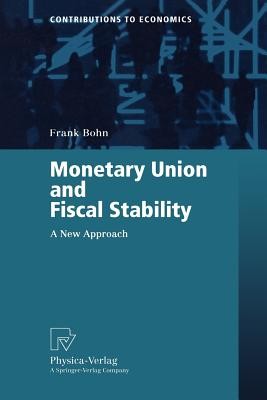
- We will send in 10–14 business days.
- Author: Frank Bohn
- Publisher: Physica Verlag
- Year: 2000
- Pages: 225
- ISBN-10: 3790812668
- ISBN-13: 9783790812664
- Format: 15.6 x 23.4 x 1.3 cm, softcover
- Language: English
- SAVE -10% with code: EXTRA
Reviews
Description
This book addresses the macroeconomic implications of a country's transition to a monetary union. By using a dynamic multi-country simulation model, it is possible to pinpoint a monetary union, and repercussions produced by fiscal retrenchment policies. Interest and exchange rate effects could only be captured once a new approach including innovations in the solution methodology had been developed. Not only can we draw lessons for newly joining members to the EMU or to any other monetary union, but the analysis also implicitly offers a new explanation for the weak Euro in the first half of 1999.
EXTRA 10 % discount with code: EXTRA
The promotion ends in 20d.23:32:53
The discount code is valid when purchasing from 10 €. Discounts do not stack.
- Author: Frank Bohn
- Publisher: Physica Verlag
- Year: 2000
- Pages: 225
- ISBN-10: 3790812668
- ISBN-13: 9783790812664
- Format: 15.6 x 23.4 x 1.3 cm, softcover
- Language: English English
This book addresses the macroeconomic implications of a country's transition to a monetary union. By using a dynamic multi-country simulation model, it is possible to pinpoint a monetary union, and repercussions produced by fiscal retrenchment policies. Interest and exchange rate effects could only be captured once a new approach including innovations in the solution methodology had been developed. Not only can we draw lessons for newly joining members to the EMU or to any other monetary union, but the analysis also implicitly offers a new explanation for the weak Euro in the first half of 1999.


Reviews